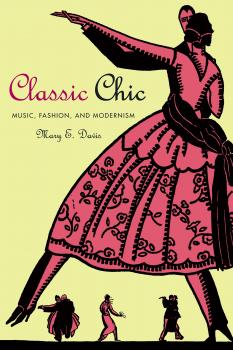ТОП просматриваемых книг сайта:
California Studies in 20th-Century Music
Скачать книги из серии California Studies in 20th-Century MusicАннотация
This lively history immerses the reader in San Francisco’s musical life during the first half of the twentieth century, showing how a fractious community overcame virulent partisanship to establish cultural monuments such as the San Francisco Symphony (1911) and Opera (1923). Leta E. Miller draws on primary source material and first-hand knowledge of the music to argue that a utopian vision counterbalanced partisan interests and inspired cultural endeavors, including the San Francisco Conservatory, two world fairs, and America’s first municipally owned opera house. Miller demonstrates that rampant racism, initially directed against Chinese laborers (and their music), reappeared during the 1930s in the guise of labor unrest as WPA music activities exploded in vicious battles between administrators and artists, and African American and white jazz musicians competed for jobs in nightclubs.
Аннотация
In <i>Experimental Otherwise</i>, Benjamin Piekut takes the reader into the heart of what we mean by «experimental» in avant-garde music. Focusing on one place and time—New York City, 1964—Piekut examines five disparate events: the New York Philharmonic’s disastrous performance of John Cage’s <i>Atlas Eclipticalis</i>; Henry Flynt’s demonstrations against the downtown avant-garde; Charlotte Moorman’s Avant Garde Festival; the founding of the Jazz Composers Guild; and the emergence of Iggy Pop. Drawing together a colorful array of personalities, Piekut argues that each of these examples points to a failure and marks a limit or boundary of canonical experimentalism. What emerges from these marginal moments is an accurate picture of the avant-garde, not as a style or genre, but as a network defined by disagreements, struggles, and exclusions.
Аннотация
The Bolsheviks’ 1917 political coup caused a seismic disruption in Russian culture. Carried by the first wave of emigrants, Russian culture migrated West, transforming itself as it interacted with the new cultural environment and clashed with exported Soviet trends. In this book, Klára Móricz explores the transnational emigrant space of Russian composers Igor Stravinsky, Vladimir Dukelsky, Sergey Prokofiev, Nicolas Nabokov, and Arthur Lourié in interwar Paris.<BR />  <BR /> Their music reflected the conflict between a modernist narrative demanding innovation and a narrative of exile wedded to the preservation of prerevolutionary Russian culture. The emigrants’ and the Bolsheviks’ contrasting visions of Russia and its past collided frequently in the French capital, where the Soviets displayed their political and artistic products. Russian composers in Paris also had to reckon with Stravinsky’s disproportionate influence: if they succumbed to fashions dictated by their famous compatriot, they risked becoming epigones; if they kept to their old ways, they quickly became irrelevant. Although Stravinsky’s neoclassicism provided a seemingly neutral middle ground between innovation and nostalgia, it was also marked by the exilic experience. Móricz offers this unexplored context for Stravinsky’s neoclassicism, shedding new light on this infinitely elusive term.<BR /><BR />  
Информация о книге
Автор произведения Klara Moricz










